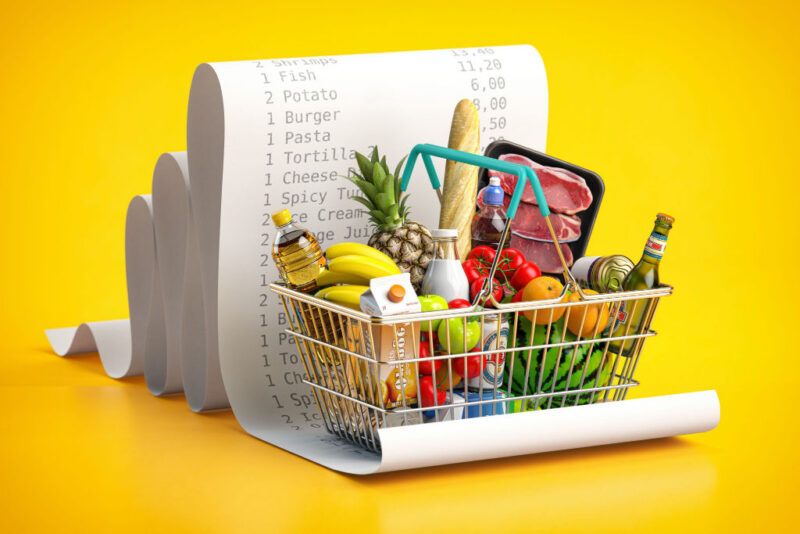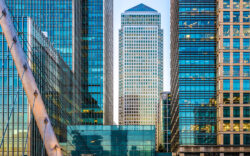Governments and central banks around the world have admitted to missing the boat on inflation. That is ironic given that they’re supposed to be the ones at the wheel…
But an apology without changing your behaviour is more of an insult. So, are the monetary authorities really fighting inflation? Or are they still busy causing it?
On the one hand, it seems obvious. Central banks are hiking interest rates like never before.
Australia’s Reserve Bank lifted rates by half a percent last week. The European Central bank by 0.75% – its biggest hike ever. Which would be impressive if the rate hadn’t been 0% before the increase, while inflation closes in on double-digits. The Bank of England announced its largest rate rise in 27 years last month. And, in January, Bloomberg summed it up: “Fed Kicks Off Most Aggressive Global Tightening in Decades”.
But do higher interest rates ease the cost of living? Or do they make the cost of living worse?
Sure, mortgage payments aren’t included in the consumer price index directly. So they don’t worsen the measured rate of inflation. But try telling your bank that your mortgage bill must be less given that inflation is falling. They won’t know why to laugh at you first.
Strangely enough, even central bankers admit that their rate hikes are not yet reducing inflation. They’re just pushing it up less than before. “We need to have somewhat restrictive policy to slow demand and we’re not there yet,” Federal Reserve Bank of New York president John Williams recently said. The Fed chair himself called US rates “neutral”.
Imagine being a central banker and running “neutral” monetary policy while inflation hits more than four times your target…
But it’s not all to do with money. One of the causes of our inflation crisis is an energy crisis. So, are governments making dramatic moves to allow more energy production? Or are they still constraining supply?
It seems to me that European governments are still busily waging economic war against the continent’s key energy supplier. Consider all the price caps, sanctions, refusing to open Nord Stream 2, and plenty more besides. No wonder energy isn’t flowing from Russia.
Governments have also been busy shutting down nuclear power plants in Germany, avoiding gas production from the Groningen gas field in the Netherlands and trying to stop places like Hungary from securing energy deals with Russia.
Another problem has been producer price inflation. Factory gate prices, they’re also known as, because they’re the prices that companies pay to produce things. It was the spike in producer price inflation in 2021 that warned us of the consumer prices inflation that has followed since. Companies pass on costs to consumers, after all.
Well, is Europe’s shut down of its manufacturing base to save energy for winter going to make producer price inflation better or worse?
Companies across Europe that produce things like aluminium, chemicals and steel are having to close their doors or reduce production because of energy costs. Which means less of what they produce is available. And that means higher prices for those using the goods.
According to the European non-ferrous metals association, “50% of the EU’s aluminium and zinc capacity has already been forced offline due to the power crisis.”
The metal producers also pointed out that Europe’s attempted energy transition to green power is reliant on the stuff that industry produces… but cannot produce under Europe’s attempted energy transition…
Some people never learn, even in a crisis.
Make UK, a lobby group pitching for more state aid, has some startling claims. Apparently, six in ten manufacturers in the UK are at risk of closure over energy prices. Some 42% of manufacturers have seen their electricity bills double in the past 12 months, and 32% for gas.
Governments are of course well aware of all this, given they caused the problems. And so they’re busily devising ways to counter it… right?
Well, when it comes to this particular topic, the German economy minister put on a display of nincompoopery which is unlikely to be surpassed any time soon. He argued that companies could simply stop operating in order to avoid going insolvent this winter…
Watch it here, if you don’t believe me.
Even more remarkably, the interviewer managed to keep a straight face. But only just.
The thing is, if bakeries and grocery stores really do shut down in order to avoid going insolvent, as the economy minister suggests, what does this do to inflation?
Less bread rolls and places to buy food means higher prices.
Indeed, what about food price inflation itself? Is shutting down Dutch greenhouses over energy bills going to help on food prices? The Dutch are the second largest exporter of food in the world…
It seems to me that politicians are intent on shutting down their economies in order to get enough energy supplies together for winter. But this only transfers the problem from energy price inflation back to producer price inflation. Which is where the inflation spike started six months before the invasion of Ukraine.
If you thought lockdowns’ effects on supply chains were bad, just wait until you see what Europe’s energy policy will do…
What about reversing quantitative easing to bring down inflation? Have central banks reversed their policies which increased the money supply? Are they actively reducing that money supply – through quantitative tightening (QT)?
Not really. The European Central Bank plans to end its QE programme this month. However, there is a new one ready in the wings to bail out Italy. And such sovereign bailouts are, historically speaking, when inflation really gets out of hand.
Bloomberg covers the Americans’ attempts at QT: “The overall size of the Fed’s balance sheet isn’t much different today, at $8.9 trillion, than when it started tightening monetary policy back in March.” It has since kicked in… marginally.
The Bank of England has announced its QT programme will depend on market conditions. It doesn’t want to crash the government bond market by selling its vast holdings. But it’s crashing already.
Are governments reducing their interventions in the economy, or their government spending to try and bring inflation under control? Or are they increasing them by forgiving student loans, capping energy bills, bailing out energy companies and more?
Heck, the Bank of England is actively bailing out energy companies with £40 billion pounds in lending! That is an extraordinary mark of inflationary madness. Having a central bank intervene in this way used to be the very definition of inflation.
The Telegraph almost manages to point out just how obviously inflationary it is:
It is expected to be similar to a scheme used in the Covid crisis, which allowed the Bank to buy short-term debt from companies, giving them a cash boost to help them survive the pandemic. The Covid Corporate Financing Facility lent more than £37bn through the scheme.
What could possibly go wrong? Exactly what went wrong last time – more inflation.
But £40 billion is peanuts compared to the Europe-wide amount. The Norwegian energy firm Equinor recently highlighted that European energy suppliers need at least €1.5 trillion to cover the cost of rocketing energy prices. I wonder where that money might come from without causing inflation?
The list of government bailouts of European energy companies is already growing extraordinarily long.
What about taxes? Those can be raised to rein in inflation, right? Well, Liz Truss just announced they’ll be cut. That presumably frees up more spending…
My point is that central banks and governments are talking the talk, but not walking the walk. They’re still actively pushing up inflation, not bringing it down.
Of course, they’re doomed either way. If they don’t cap energy bills, inflation will only get worse. If they don’t shut down industry, the energy crisis will only get worse. And if the energy crisis isn’t allowed to get worse, then you’ve got an industrial crisis.
That’s the problem with an energy crisis. It leaves you with no options. Except, of course, to open the spigots, turn on the abandoned nuclear power and produce more of everything. Which governments are not allowing energy companies to do. They’re threatening them with taxes on the profits they’d make instead.
One of the very few remaining solutions is an end of the Ukraine war and Russian sanctions. That is why I expect a rather sudden turnaround on that front.
In a few months’ time, the EU sanctions on Russian oil will kick in. But I doubt they will, unless you want to add an oil crisis to the mix. Now that’d be inflationary!
Either way, it’s time to make your financial affairs robust to further inflation. It could be higher for longer than the consensus currently expects.
But how?

Nick Hubble
Editor, Fortune & Freedom




